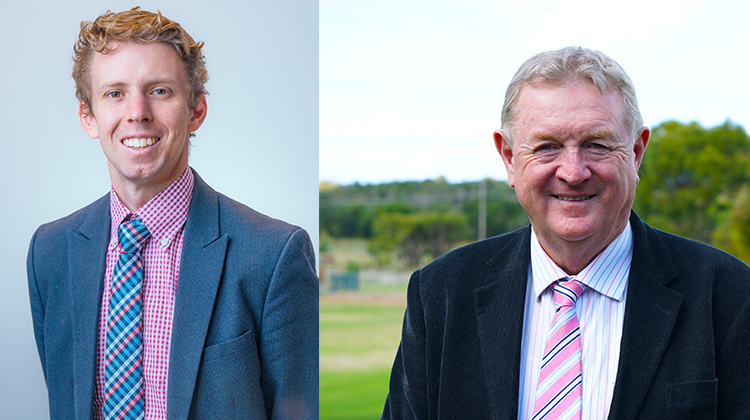It Doesn’t Have to be Lonely at the Top

The thing about winning the principal’s job is that the process of getting there doesn't always prepare you for the demands and complexity of the role.
A principalship is usually the culmination of years of teaching and for many is something that happens in your late 40s or 50s, having worked as a senior educator.
But teaching and principalships are two very different propositions, for one, a principal is responsible for the entire raft of challenges that a school generates above those of a department or a class. Often, they are left to find a way through on their own.
Noticing a paucity of principalship ready staff four years ago, Christian Education Ministries set about creating a process of developing new, young principals who would be ready for the role and therefore thrive in it.
Under the program, the trainee principals are mentored by an experienced principal, and through this process gain exposure to all aspects of principalship. In addition, they visit the national office twice a year to engage in formal training. There is no set time frame associated with the program.
Malcolm Bromhead Christian Education Ministries - Manager of Emerging Schools is a fan of the Trainee Principals' Program.
“David Fyfe, the CEO of CEM, was the driving force behind this initiative, as he noted the large number of principals of Christian schools approaching retirement. The intent behind the program is to prepare future leaders to lead a Christian school effectively from day one,” he says.
He feels the role of principal is distinct from that of senior teacher, a principal shoulders responsibility for the overall leadership of the school which includes setting the vision and direction of the school, managing staff, overseeing the budget, ensuring the safety and wellbeing of students, and liaising with the wider community, including parents and external organisations.
“A senior teacher might have responsibilities that include teaching students, mentoring younger teachers, leading curriculum development within their subject area, and possibly handling some administrative tasks. Their focus is often more classroom and department-centric rather than whole-school focused,” Bromhead says.
For David Ramsay, principal ACC Southlands in Albany WA, a principalship came after a significant lead time and extensive preparation and mentorship.
“I was in the trainee principal program for three years before stepping into a principal role. I first came in as the deputy principal under a very experienced leader. Sitting under that leader was extraordinary for my growth and development and it has really set me up well for my role as principal now. In that process they helped me take on more and more responsibility.
“I also had the backing of the CEM National Office who provided me further understanding and skills in accounting, finance, governance, strategic planning, HR, marketing and other fundamentals to school leadership. I also had the opportunity to sit on some school boards and experience governance from the other side of the table.
“If you are looking to step into leadership then I think the trainee principal program is unique in the way that it will give you skills, understandings, and experience in a meaningful and practical way. It's a chance for you to do an ‘apprenticeship’ model to leadership, coming alongside an experienced leader, preparing you with the skills to take on your next challenge.
“The program has provided me with a range of connections, both from mentors in the program to other people in the trainee program. It has been invaluable to bounce off different ideas with these people and to gain others' perspectives on issues that arise. The program has helped me engage in financial matters to a level I wouldn't have been able to previously. I have gained confidence to address issues front-on, with understanding and experience, that I otherwise wouldn't have had,” he says.
There is an application process with final candidates selected by the CEO of CEM. After completing the program, candidates are better positioned for principal roles within Christian schools. The program also provides adequate exposure to the demands of the role, so candidates can decide if it is right for them, or not.
“It is a challenging role, but one that is incredibly useful. Participants can know that if they ever take on a principalship, they will do so being well prepared. From CEMs point of view, we are developing skills in leaders that any School or Church would be blessed by,” Bromhead says.